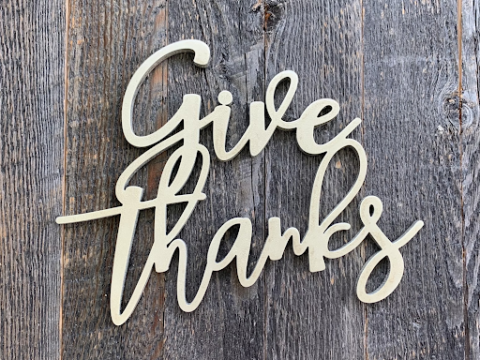Rethinking Thanksgiving
November 17, 2023 Leave a commentI was that kid. I grew up in Carver, Massachusetts, next door to Plymouth. In middle and high school, I challenged (and most likely annoyed) my teachers when I wondered out loud why Native Americans would want to celebrate Columbus Day or Thanksgiving. “Shouldn’t it be a day of mourning for them?” I’d ask. I don’t recall any teacher having a good answer to my question or even being willing to engage in meaningful dialogue. In the years since, I have earned a reputation among family and friends as being “no fun” or “too serious” for pointing out the oppressive underpinnings of many elements of popular culture and U.S. traditions.
I didn’t know it at the time, but “[s]ince 1970, Native Americans have gathered at noon on Cole’s Hill in Plymouth [not far from where I went to high school] to commemorate a National Day of Mourning on the US Thanksgiving holiday. Many Native Americans do not celebrate the arrival of the Pilgrims and other European settlers. Thanksgiving day is a reminder of the genocide of millions of Native people, the theft of Native lands, and the relentless assault on Native culture. Participants in National Day of Mourning honor Native ancestors and the struggles of Native peoples to survive today. It is a day of remembrance and spiritual connection as well as a protest of the racism and oppression which Native Americans continue to experience.” Source: http://www.uaine.org/
Thankfully, I know more now than then, and I am grateful that the enduring impact of racism and colonization has made its way into the public discourse in the U.S. And, we still have a long, long way to go!
While there is nothing wrong with having a time for families and friends to gather and reflect on their lives with gratitude – even in the midst of so much war, oppression and devastation – it’s also important to correct the historically inaccurate mythology that surrounds this holiday. Native American activists remind us that giving thanks was a Native American tradition for generations before the European settlers arrived in Plymouth, and long before President Lincoln established Thanksgiving as a U.S. national holiday. As Suzan Shown Harjo, a member of the Cheyenne and Arapaho tribes and recipient of the Presidential Medal of Freedom, reminds us in a 2014 interview, some Native American people celebrate Thanksgiving in keeping with that generations-long tradition, while others observe it as a day of mourning – a day to reflect on the devastation their people have experienced at the hands of settlers, and the U.S. government — both historically and currently.
Here are a couple of things to consider to bring more accuracy and equity to your Thanksgiving traditions.
- Teach your children a true story. Check out these children’s books that speak from the point of view of Native Americans.
- Attend an observance of the National Day of Mourning in your area. You’ll join your heart in mourning and you’ll learn a lot. You may even begin to build new relationships. If you’re in New England, consider joining the United American Indians of New England on Cole’s Hill in Plymouth.
- Act in solidarity with Indigenous activists in your area. If you’re in Massachusetts, the Massachusetts Indigenous Agenda is a great place to start.
- Join the Decolonizing Wealth Project and its Liberated Capital Giving Community. Read Edgar Villanueva’s book Decolonizing Wealth: Indigenous Wisdom to Heal Divides and Restore Balance and get a guided journal to help you learn to apply his “Seven Steps to Healing” so you can begin to use money as medicine to heal what’s broken in our world. The seven steps are straightforward and simple to state, and oh so challenging to practice! (No spoilers here! Get the book and the journal!) As I reviewed them recently, I realized how often I skip past some of the steps and sometimes even practice their exact opposite. I invite you to join me in digging deeper, reflecting more honestly, loving harder, and practicing grace with oneself and with others more often. How will you open yourself to being guided by Indigenous wisdom as we seek to heal divides and restore balance?
This Thanksgiving, let’s connect with those we love and enthusiastically give thanks for the many blessings in our lives. And let’s reflect on what has made those blessings possible, including the full range of effort, sacrifice, serendipity, privilege, and oppression. Rather than be paralyzed by anger, guilt, or fear, let’s find ways to make our awareness and gratitude count for justice!

